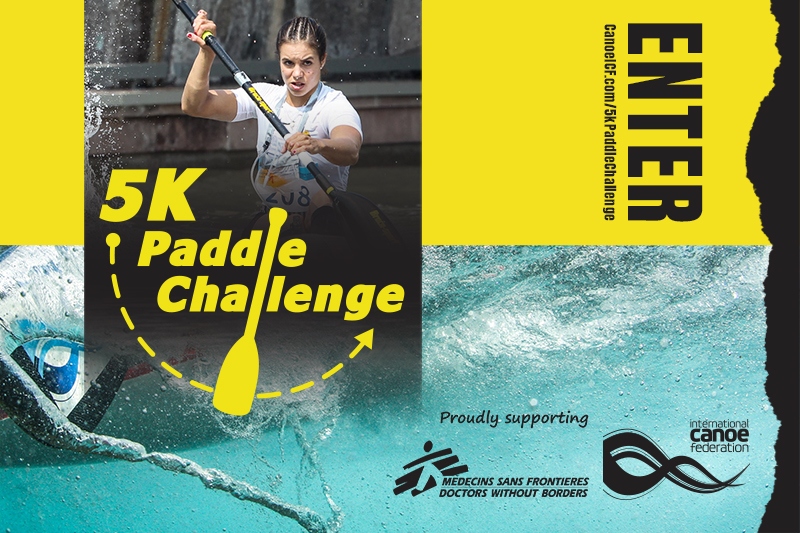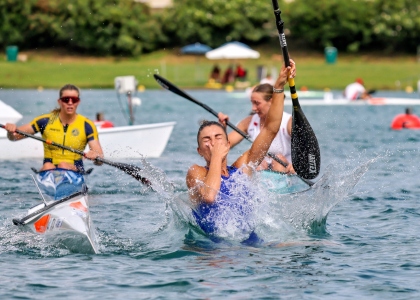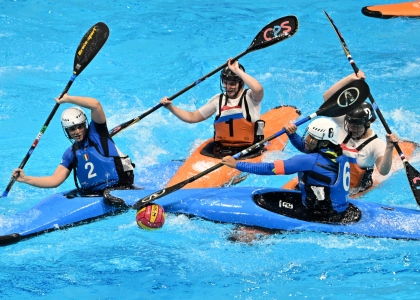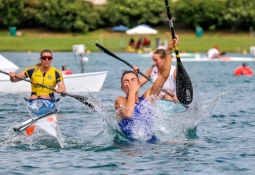Covid-19 has presented new challenges for everyone around the world, including charities like Doctors Without Borders (MSF) who are on the front line of the fight to contain the deadly virus.
At times it has meant discarding the rules which should normally apply in pandemic situations. When you are confronted with a medical facility filled to overflowing, in a community where social distancing and basic hygiene is near-on impossible, you have to find new ways to try and stop people dying.
“In the slums of Nairobi and Manila, people were being told they had to wash their hands,” MSF doctor Natalie Roberts said this week. Roberts is the former head of MSF’s emergency operations.
“People would reply ‘How can I wash my hands, I don’t have soap, I don’t have access to water. My main problem today is I don’t have enough food.”
MSF is a major player in the global fight against covid-19, tapping into its long history of fighting pandemics and disease outbreaks in some of the world’s poorest regions.
The International Canoe Federation is partnering MSF during its 5k paddle challenge, encouraging people around the planet to get active by paddling five kilometres, while raising awareness of the work being carried out by MSF globally.
How can I wash my hands, I don’t have soap, I don’t have access to water. My main problem today is I don’t have enough food.
All entrants in the international 5k challenge, where people can compare their times against paddlers all over the world, are being encouraged to make a voluntary donation to MSF. Participants can paddle on lakes, rivers, creeks or the ocean, in any craft officially recognised by the ICF, and as long as they follow local safety restrictions.
People who are unable to get outside can complete the challenge indoors on an ergo.
In the slums of Nairobi and Manila the MSF started distributing soap, and arranged for water ports to be set up throughout communities. In London and Paris and New York it might seem basic, but it means a lot in cities where people are scared that every time they wipe their face they may be infecting themselves.
MSF is currently working in more than 70 countries around the world. Many of these countries already had major health problems, so the challenge for MSF is to tackle the spread of coronavirus, while also ensuring treatment for other problems like HIV, diarrheal diseases and malaria, continues.
“There are different ways of doing it,” Roberts said.
“We’re not sure if it’s effective, but at least it’s a sign for the local population that we are trying to do something to help them protect themselves, and they can think logically about how to protect themselves and their family, while still being able to work and put food on the table.”
In the Democratic Republic of Congo there are around 450,000 people living with HIV. MSF has a group of about 3000 patients in the city of Goma. The arrival of covid-19 meant major changes to the existing treatment regime.
“We needed to change the program because we didn’t want to be bringing these patients to crowded health facilities,” Natalie Roberts said.
“They were obviously more at risk of getting covid, they were much more vulnerable. So rather than bringing them to the clinic every day, we sent them away with three months supply of the drugs. We used SMS to keep in touch.
“There is only a certain amount of staff that we have available, there’s only a certain amount of budget we have available. It comes down to how best do we use these resources, how do we share them out.
“A lot of the messaging in places like Europe is not applicable in regions like Africa and Asia. For example, people in Bangladesh and Nairobi were taking the advice to stay home, but were not even coming in when they had symptoms.”
But its not just in the poorest countries where MSF is desperately needed right now. In the UK, Spain, France and Italy, for example, the MSF has also been called into action.
The health system here is very advanced, but the virus has outpaced all attempts to deal with the increasing number of cases
It’s a reflection of how fast the virus is spreading, and how much pressure it’s placing on local authorities.
“We do sometimes work in higher income settings, where we feel there is a danger of health systems being overwhelmed, or where we feel there is the possibility of more marginalised groups falling through the cracks,” MSF UK executive director, Vickie Hawkins, said.
In the Lombardy region of Italy, one of the worst affected sources of the outbreak in the world, MSF had a team of 25 working mainly in hospitals in three of the hardest-hit towns.
Chiara Lepora is the project coordinator in the area.
“The health system here is very advanced, but the virus has outpaced all attempts to deal with the increasing number of cases,” she said.
“The hospitals are at their limit. In the emergency room at the Lodi hospital, there are now 80 beds. Yet even with that extra capacity, the only way to refer a new patient in is if another patient recovers or dies.
“It’s been incredible to see people working around the clock, trying to adapt, trying to learn, trying to collaborate to save as many lives as possible, all while working in the face of so much death.”
You can read more about the work of MSF and its fight against Covid-19 here.
To take part in the ICF’s 5k challenge, enter here. You can read all the rules here.





